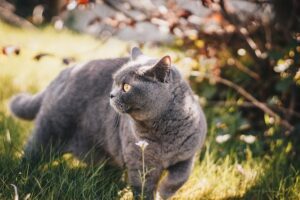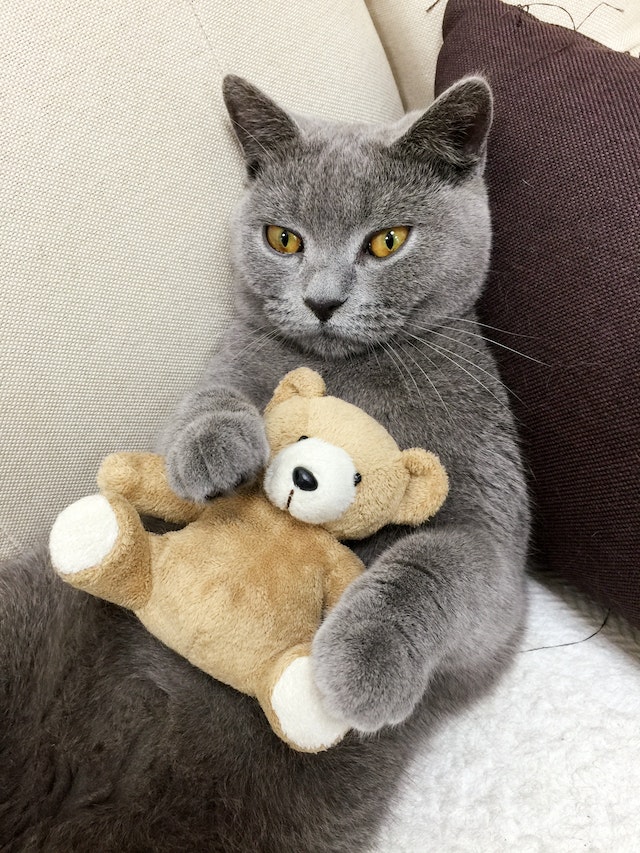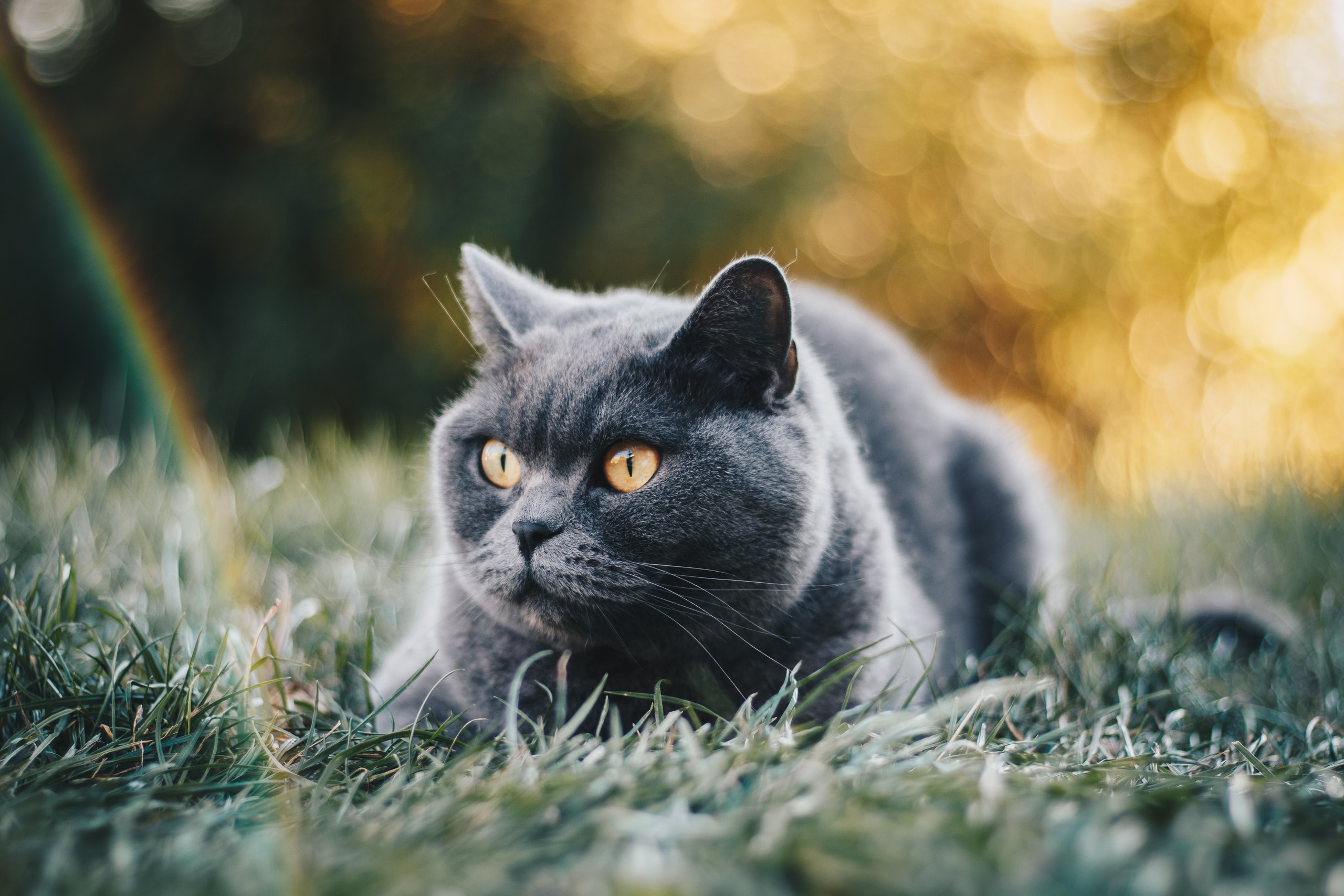We’re glad you stopped by our website devoted to cats in general and the adorable British cat in particular! Here, we highlight the various perks of cat ownership and discuss our fondness for feline pets.
The British Shorthair is a well-liked breed of cat due to its cuddly fur and round face. Many other cat breeds, though, are every bit as charming and special in their own ways. We think every cat should be welcomed, and we hope to achieve that here.
| Affection Level | High |
| Friendliness | Medium |
| Kid-Friendly | High |
| Pet-Friendly | High |
| Exercise Needs | Medium |
| Playfulness | Medium |
| Energy Level | Medium |
| Intelligence | High |
| Tendency to Vocalize | Low |
| Amount of Shedding | Medium |
Our Popular Posts
- What is the Cost of British Shorthair Cat?
- How Many Kittens Can a British Shorthair Have?
- Is Raw Food Good for British Shorthair?
- Can British Shorthair cats be left alone?
- Shaving a British Shorthair Cat: Good or Bad?
- Can British Shorthair Cat and Maltese Dog Be Friends?
- Can British Shorthair Jump High?
- Which one to choose British Shorthair or Russian Blue?
- How Long Can British Shorthair Cats Live?
- How To Cook Chicken For Cats?
- Are Carrots Safe For Cats?
- Foggy Eyes In Cats
- 5 Best Filler-Free Cat Food
- Home Remedies For Cat Skin Allergies
- 5 Best Deodorizers For Cat Odor
- How Do I Care A Cat With Worms?
- Common Cat Sounds With Their Meaning
- Home Remedies For Cat Skin Allergies
- How Does Cat Intelligence Work?
Let’s Delve into British cat’s history
With roots tracing back to ancient times, the British cats is a well-esteemed feline species that has captured the hearts of many. It can be attributed to the domestic cats of Rome, brought to the shores of Britain by Roman soldiers over two millennia ago. These cats intermingled with indigenous feral cats, culminating in the emergence of an adaptable and robust breed that was deemed fit for the British climate and way of life.
Centuries passed, and the British Shorthair’s prominence flourished, featuring prominently in works of art and literature. In the late 1800s, British cat were crossbred with a diverse range of feline breeds, including but not limited to the Persian and Siamese cats, consequently giving birth to a panoply of new feline types. Despite this, in the early 1900s, breeders resolved to conserve the quintessential British Shorthair form, and as such, the breed was granted recognition by the venerable Governing Council of the Cat Fancy (GCCF) in 1901.
Get acquainted with their appearance

British Shorthair cats, recognized for their robust and muscular bodies, have remarkable physical qualities that distinguish them apart from other felines. They appear muscular and athletic due to their strong legs and chest.
British Shorthairs’ rounder heads and prominent cheeks give them a cherubic appearance. This breed’s wide, round, expressive eyes, which can be gold or blue, broad snout, and open nostrils are its most distinctive features. Additionally, the British Shorthair’s thick, plush coat enhances its beauty. Their coats come in solid blues, blacks, whites, creams, and bi-colours each having a unique and lovely appearance.
British Shorthairs are medium to large, with males weighing 9 to 18 pounds and females 7 to 12 pounds. British cats are sought after by cat lovers worldwide due to their attractive and unusual appearance.
An Insight into their Personality

The British Shorthair cat is known for its unique appearance and personality. This breed is popular with households and individuals due to its calm and friendly disposition.
The British Shorthair’s calmness is one of its main traits. Unlike talkative cats, these felines utilise nonverbal signs like body language to communicate. They seem to enjoy lying around the house or sitting on their owners’ laps. British cats are playful and enjoy to interact with their owners, despite their sedentary appearance. They love playing hide-and-seek and chasing toys. They’re great for families with kids because they’re entertaining and gentle. British cats are affectionate, loyal, and playful. Like dogs, they crave attention and affection from their owners.
To sum up, the British Shorthair is a great choice for anyone looking for a loving and loyal companion due to its harmonious blend of calm and active traits.
Discover diet and nutrition of British Shorthair cats
The British Shorthair, a beautiful and adored breed, needs a well-balanced and nutritious diet to stay healthy and happy. Proper nourishment helps them keep a healthy weight and skin and coat. British Shorthairs need a high-protein diet because they’re obligate carnivores. High-quality animal-based protein sources like chicken, turkey, and fish are crucial for these cats’ diets.
British Shorthair should be provided with high-quality commercial cat food developed for their age and needs to ensure they get all the nutrition they need, including key fatty acids, vitamins, and minerals. Their food also requires clean, fresh water, which should always be available. Maintaining kidney health and preventing urinary tract issues requires proper water.
General Health of British Shorthair cats
British Shorthair cats are robust and strong, but like any cats, they can get sick. To care of their cats properly, owners must understand these health issues. These cats, who adore food, are prone to obesity. Weight increase can cause heart disease, diabetes, and joint issues. Owners must monitor their cat’s weight and make diet changes.
British Shorthairs are also prone to teeth decay and periodontal disease. Brushing and dental check-ups can prevent these issues. These cats, especially males, often have urinary tract issues that can be fatal if not treated. If their cat’s litter box habits alter, owners should contact a vet.
British Shorthairs also have genetic cardiac conditions such hypertrophic cardiomyopathy (HCM), which can cause heart failure. Regular screenings and check-ups can discover these disorders early and guarantee proper treatment. Owners must take preventative measures to keep their British Shorthair cats healthy. Owners may help their cats live long and happy lives by understanding and meeting their health needs.
The Bottom line
British Shorthairs are kind and calm, making them good pets despite their tendency to lounge. “Lap cats” like to cuddle and slumber with their owners. They fit into apartments, houses, and pet-friendly households. Another reason the British cat is adorable is its playfulness. Despite their laid-back nature, they enjoy playing with toys, climbing furniture, and taking short leash walks. Their ingenuity and curiosity drive them to discover new adventures.
No matter how much or how little experience you have with cats, we hope you’ll join us on our voyage of discovery.

